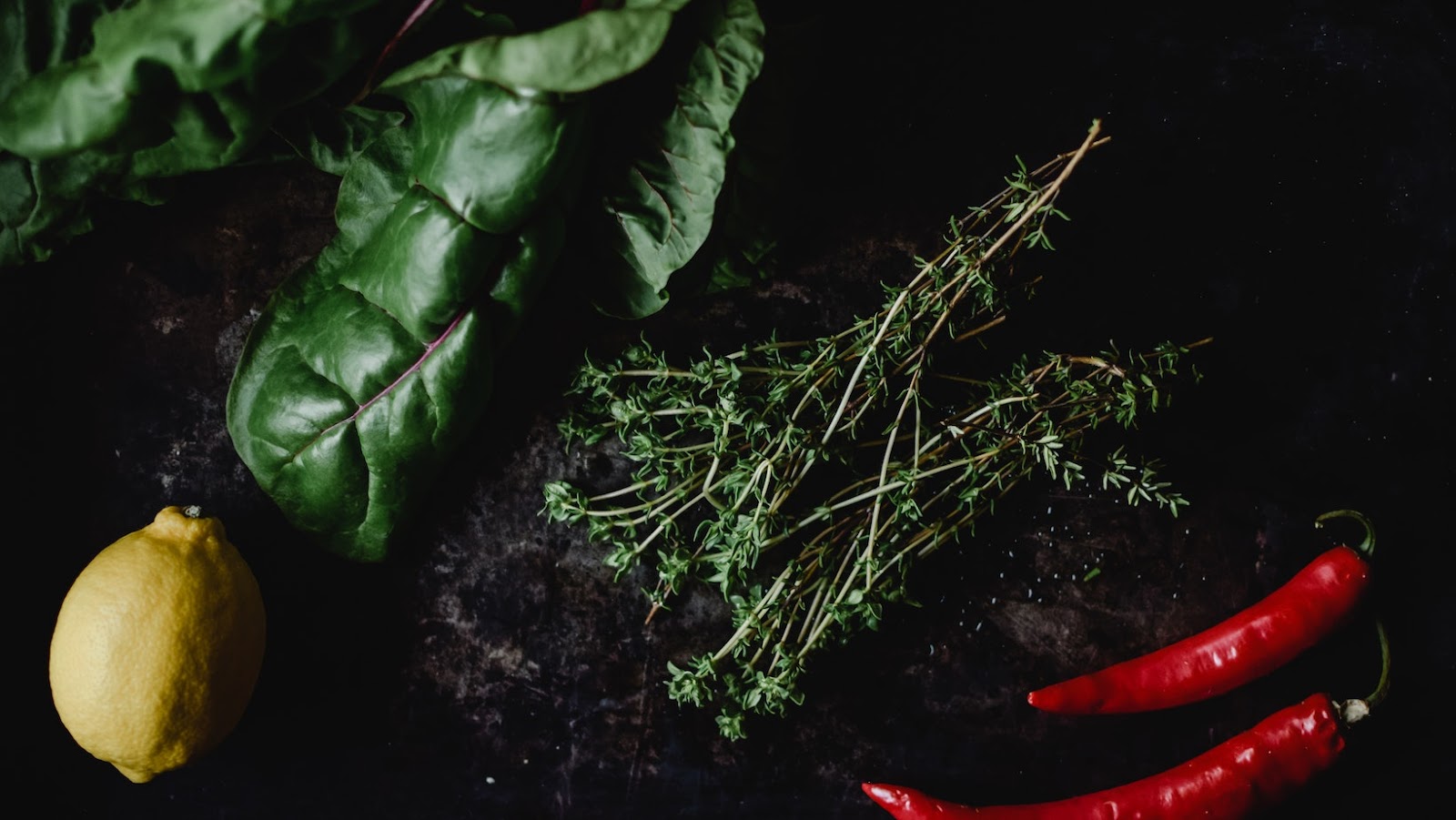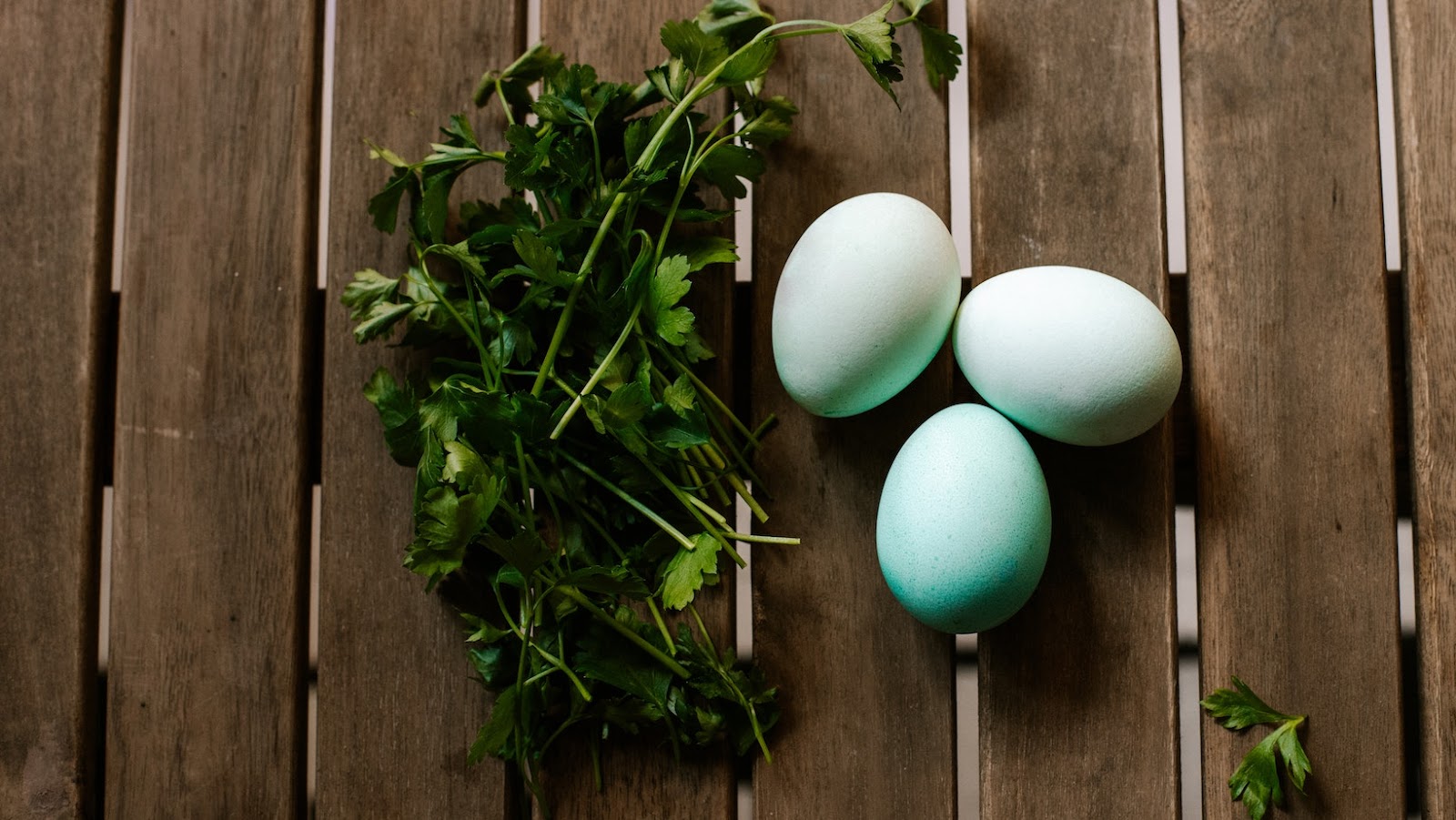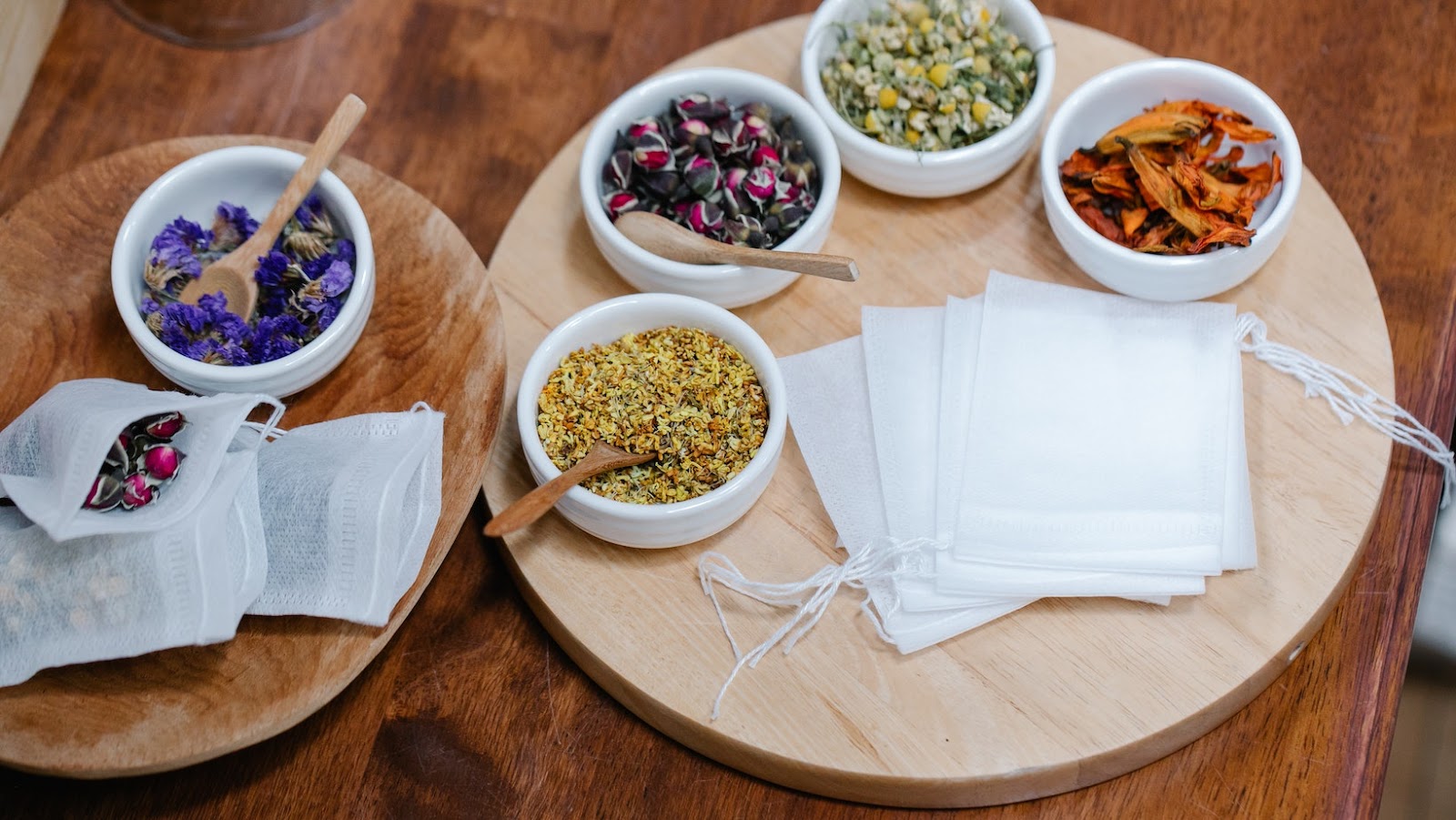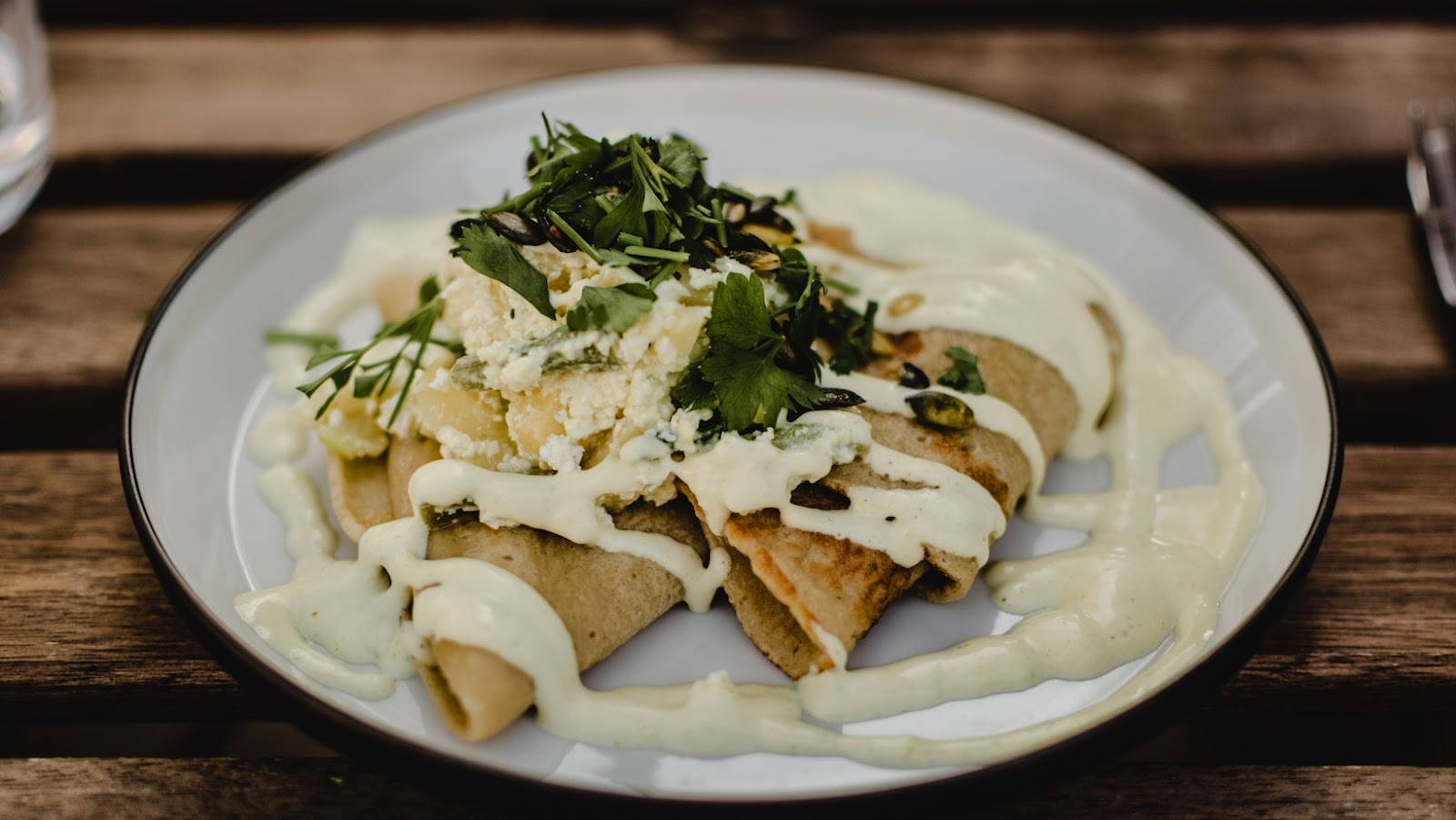Fresh or dried herbs: which is better for cooking? When it comes to adding flavor to your dishes, both types of herbs can be equally useful and delicious. However, there are some differences when deciding which one to use. Here is an overview of fresh and dried herbs, including their benefits and drawbacks.
It’s important to note that some herbs, such as basil and parsley, lose a significant amount of flavor when dried, while others, like oregano and thyme, can improve. Additionally, dried herbs have a longer shelf-life and are more convenient to use, as they don’t require washing or chopping. On the other hand, fresh herbs have a brighter color, stronger flavor, and more intense aroma, making them ideal for certain dishes.
To make the most out of your herbs, consider these suggestions:
- Use fresh herbs in season and peak flavor, and dried herbs when fresh ones are unavailable.
- Remember that dried herbs are generally more concentrated, so use them sparingly.
- To release the flavors of dried herbs, rub them between your hands before adding them to your dish.
- When substituting dried herbs for fresh ones, use one-third of the amount specified in the recipe.
- Store fresh herbs in the refrigerator, wrapped in a damp paper towel and placed in a plastic bag. Store dried herbs in a cool, dark place away from heat and humidity.
The choice between fresh or dried herbs ultimately depends on personal preference and the dish you’re preparing. Both herbs have unique qualities that can enhance the flavor of your meals. However, fresh herbs are the only way to turn a regular dish into a gourmet masterpiece, unless you have a private helicopter to fly in truffle flakes.
Table of Contents
ToggleWhat are Fresh Herbs?
Fresh herbs are living plants used for cooking. Hand-picked just before use, they stand out with their bright green leaves. Unlike dried herbs, they have a milder taste – grassy or citrusy. Popular fresh herbs include basil, parsley, cilantro, mint, rosemary, thyme and chives.
Fresh herbs offer several benefits. They are packed with vitamins and minerals. Plus, they add flavor to dishes without extra salt or fat. And, they make a dish look good with their vibrant colors and textures.
Ancient Greeks and Romans used fresh herbs in cooking and medicine. Even some combinations were believed to cure diseases! So who needs a garden when you can keep a jar of dried herbs on your shelf? Lazy cooks everywhere rejoice!
What are Dried Herbs?
Dried herbs are herbs that have had moisture removed to extend their shelf life. They come in various forms like leaves, crumbles, and powders. Drying herbs is a time-honored way to preserve tender, garden-fresh herbs’ intense aroma and flavor.
Dried herbs can be great for recipes that take longer to cook. They don’t wilt and spoil quickly. Dried herbs have less moisture and nutrients than fresh herbs, making them milder. Parts of different plants (leaves, seeds, flowers, roots) have different flavors and scents.
Different blends of dried herbs can add unique notes to dishes, and make restaurant-style meals at home! Use dried herbs to upgrade your culinary skills. Fresh herbs are like Beyoncé, while dried herbs are like her backup dancers – still good, just not the main attraction.

Differences Between Fresh and Dried Herbs
Fresh vs Dried Herbs: Overview
People often wonder which herbs to use – fresh or dried. Both fresh and dried herbs have their merits, and the choice depends on several factors. Here’s a table to compare:
Flavor Strong and sharp Mild flavor with intense oils
Aroma Vibrant Subtle scent
Shelf Life Short Long-lasting
Nutritional value High, due to vitamins and minerals Low due to dehydration
Fresh herbs have more nutrients, but can’t last as long. Dried herbs are lower in nutrition, but can be stored for longer.
Fresh herbs are great for salads and dressings. Dried herbs can be used for cooking or baking.
Humans have been using herbs for medicinal purposes since ancient times. From India to China, and in Islamic medical traditions, plants have been part of our medical system for a long time.
Why choose fresh herbs when you can add a pinch of dried rosemary and be a chef?
Fresh Herbs for Cooking: Advantages and Disadvantages
Fresh Herbs for Cooking: Benefits and Drawbacks
Fresh herbs are an essential ingredient in cooking but have advantages and disadvantages. Here are some points to consider when using fresh herbs in your cooking:
- Fresh herbs have a more intense flavor, aroma and color, which can enhance your dishes. They are also packed with nutrients, making them a healthier choice.
- However, fresh herbs are more expensive and perishable than dried herbs. They also require more preparation time, such as washing, drying, and chopping.
- On the downside, fresh herbs can overpower your dish if not handled properly, and different herbs have varying potency. So, it’s essential to use them moderately and balance their flavors.
It’s worth noting that the quality and freshness of the herbs can make a significant difference in your dish. Conversely, using wilted or old herbs can negatively impact the flavor or aroma of your dish.
According to a study by the University of California Agricultural and Natural Resources, fresh herbs are rich in antioxidants and anti-inflammatory compounds with several health benefits. So, using them in your cooking is a good idea whenever possible.
“Fresh herbs are like a garden in your kitchen, except you don’t have to water them and they won’t die when you forget about them for a week.”

Advantages of Using Dried Herbs
There are six great reasons for using dried herbs in the kitchen:
- They have a longer shelf life & are cheaper than fresh herbs.
- Flavors stay consistent over time.
- The drying process increases the potency of essential oils, making them tastier.
- No washing, chopping or storing needed.
- Can be used in marinades or rubs without adding too much moisture.
- Takes up less storage space.
Not all herbs benefit from being dried. Sage, thyme & rosemary are exceptions as they retain their intense flavors when dried.
Did you know ancient Egyptians used drying techniques to preserve medicinal plants? For example, it was popular to bury bundles of mint with pharaohs to use in the afterlife. This practice spread to Greece, Europe & Asia.
Dried herbs are so awesome, they’ll outlast any ex trying to come back into your life!
Longer Shelf Life
Dried herbs are a great way to add flavor to your meals and save money! Some awesome benefits include:
- Long shelf life – up to two years
- Less susceptible to bacterial or fungal growth
- Drying reduces moisture content
- No need for refrigeration
- Buy in bulk and store in jars with airtight lids
- Full range of flavors available all year round
Plus, some dried herbs develop more intense flavors than fresh herbs due to the concentration of oils during drying. It’s also worth noting that herbs have been used for medicinal purposes before being used in cooking. For example, ancient Egyptians used dried oregano leaves to cure wounds and digestive issues. Dried herbs make cooking so much easier – it’s like having your own personal sous chef!
Convenient to Use
Using dried herbs makes cooking simpler and more convenient. They boast many advantages, such as:
- Easy storage.
- Can be bought in bulk.
- No washing or chopping needed.
- Available all year round.
- More affordable than fresh herbs.
But, their robust flavor should be handled with care – too much could overpower! If using fresh herbs instead of dried, use 1/3 less amount. Though they may lack fresh appeal, dried herbs have clingy flavor.
Retains Flavor
Dried herbs: when fresh isn’t always the best option. Packed with aromatic oils, they cook better than fresh and hold their fragrance for months. Plus, they come pre-crushed into small pieces of spice that blend easily with other seasonings. A great way to preserve the taste and aroma of dishes without waiting for harvest seasons.
Label your herb containers and add use-by dates to ensure freshness.
Disadvantages of Using Dried Herbs
When it comes to cooking with dried herbs, there are a few downsides. These can affect the flavor and quality of your dishes. Here are some disadvantages of dried herbs:
- They don’t smell as good – Dried herbs lose their oils during drying, which makes them less fragrant than fresh herbs.
- Shorter Shelf Life – They don’t last as long as fresh herbs due to loss of flavor and oils.
- Storage Issues – You need an airtight container to store them properly, which is harder in humid climates.
Also, some dishes may need fresh herbs. But if you can’t get those, dried herbs can still work.
Pro Tip: Toast the dried herbs in a dry pan before using them. This will release the oils, adding more flavor to your food.
Dried herbs may not be as aromatic, but at least they won’t be too overpowering.
Fresh vs Dried Herbs
Four factors to consider when using dried herbs:
- Age: Volatile oils degrade, scent weakens.
- Processing: Different techniques affect aroma.
- Storage: Stale herbs lose scent faster.
- Quantity used: More needed than fresh herbs.
Fresh herbs have a better smell, but can be hard to find. Ancient cultures used plants for medicine and food. Egyptians revered plants for their mystical abilities. Dried herbs may not be as potent, but won’t judge your takeout habit!
Lesser Nutrients
Dried herbs have some downsides when it comes to their nutrient content. Even though they still have some beneficial vitamins and minerals, drying reduces their nutritional potency.
- The water-soluble vitamins are reduced.
- The heating process causes the oxidation of antioxidants.
- Heat-sensitive enzymes, which help nutrient absorption, are destroyed due to the drying process.
- Dried herbs lose flavor and aroma, reducing their potential as fresh herb substitutes.
- Different dehydration methods influence how much nutrition is retained in dried herbs.
- The longer herbs are stored, the more nutrients are lost over time.
We must remember that not all dried herbs lose the same amount of nutrients. It depends on the species or even if it’s fresh.
Historically, people have used dried herbs for natural remedies. For example, in Victorian Britain, rose petals were used for digestive issues and heart conditions. Fresh herbs might be better for cooking, but dried herbs can survive a apocalypse.

Which is Better for Cooking: Fresh or Dried Herbs?
Paragraph 1 – Fresh or Dried Herbs: Which is the Better Option for Cooking? When it comes to using herbs in cooking, choosing between fresh or dried can be confusing. Let’s explore the benefits of each in order to determine which option is superior.
Paragraph 2 – A Comparison of Fresh and Dried Herbs for Cooking:
Fresh Herbs Dried Herbs
-Contain more water -Concentrated flavor
-Milder flavor -Stronger flavor
-Added towards end of cooking -Added at start of cooking
-More expensive -Cheaper
Paragraph 3 – In addition, it is important to consider the dish being prepared when deciding which type of herb to use. For example, some recipes may call for fresh herbs for their delicate flavor, while others may require dried herbs for their concentrated taste. Additionally, some herbs, such as bay leaves or rosemary, retain their flavor well when dried, making them a better option for long-cooking dishes.
Paragraph 4 – Herbs have been used in cooking for centuries, dating back to ancient civilizations such as Egypt and Rome. The use of herbs not only enhances the taste of food but also provides various health benefits. Nowadays, fresh and dried herbs are more widely available and are used in different ways, making it easier than ever to incorporate them into our daily meals.
Choosing between fresh and dried herbs is like choosing between a bouquet of flowers or a bag of potpourri – both add aroma, but one dies faster.
Conclusion on Which is Better for Cooking: Fresh or Dried Herbs?
When it comes to cooking, deciding between fresh and dried herbs can be tricky. We’ve gathered data to help you make an informed choice.
Fresh herbs are usually more flavorful and aromatic. But dried herbs last longer and are more convenient. It all depends on personal preference and what you’re using them for.
For dishes like soup and stew, dried herbs are better as their mild flavor will be released gradually during cooking, instead of one strong burst.
TIP: To save fresh herbs for later use, freeze them with olive oil in an ice cube tray.





